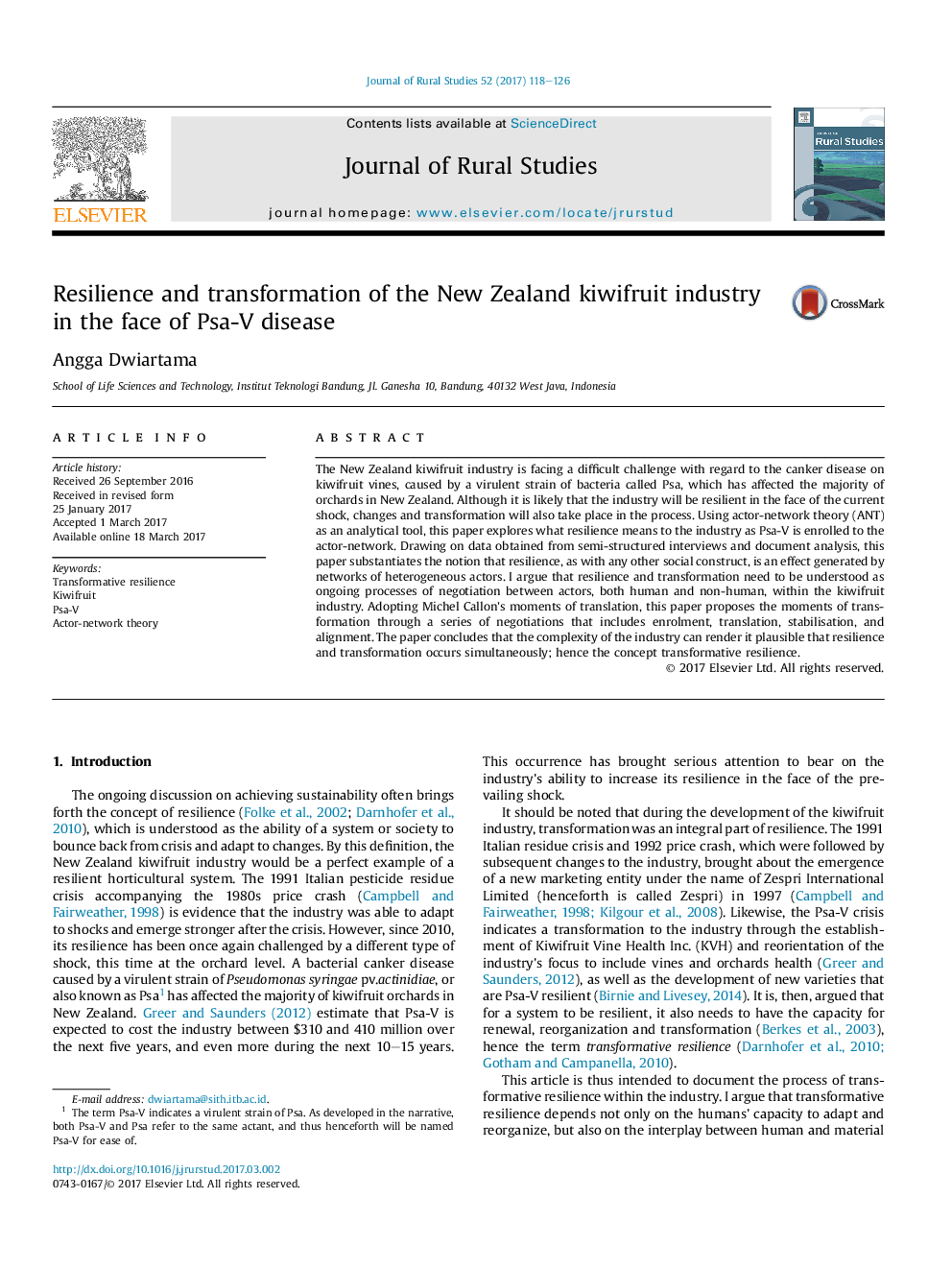| Article ID | Journal | Published Year | Pages | File Type |
|---|---|---|---|---|
| 6460084 | Journal of Rural Studies | 2017 | 9 Pages |
â¢This paper links resilience and transformation in the New Zealand kiwifruit sector.â¢It looks at the event of Psa outbreak that reconfigure relationships in the sector.â¢This paper sees the role of non-human actors in shaping the industry's resilience.â¢It uses Callon's (1986) 'moments of translation' as an analytical framework.â¢It argues that negotiations between actors build into a transformative resilience.
The New Zealand kiwifruit industry is facing a difficult challenge with regard to the canker disease on kiwifruit vines, caused by a virulent strain of bacteria called Psa, which has affected the majority of orchards in New Zealand. Although it is likely that the industry will be resilient in the face of the current shock, changes and transformation will also take place in the process. Using actor-network theory (ANT) as an analytical tool, this paper explores what resilience means to the industry as Psa-V is enrolled to the actor-network. Drawing on data obtained from semi-structured interviews and document analysis, this paper substantiates the notion that resilience, as with any other social construct, is an effect generated by networks of heterogeneous actors. I argue that resilience and transformation need to be understood as ongoing processes of negotiation between actors, both human and non-human, within the kiwifruit industry. Adopting Michel Callon's moments of translation, this paper proposes the moments of transformation through a series of negotiations that includes enrolment, translation, stabilisation, and alignment. The paper concludes that the complexity of the industry can render it plausible that resilience and transformation occurs simultaneously; hence the concept transformative resilience.
